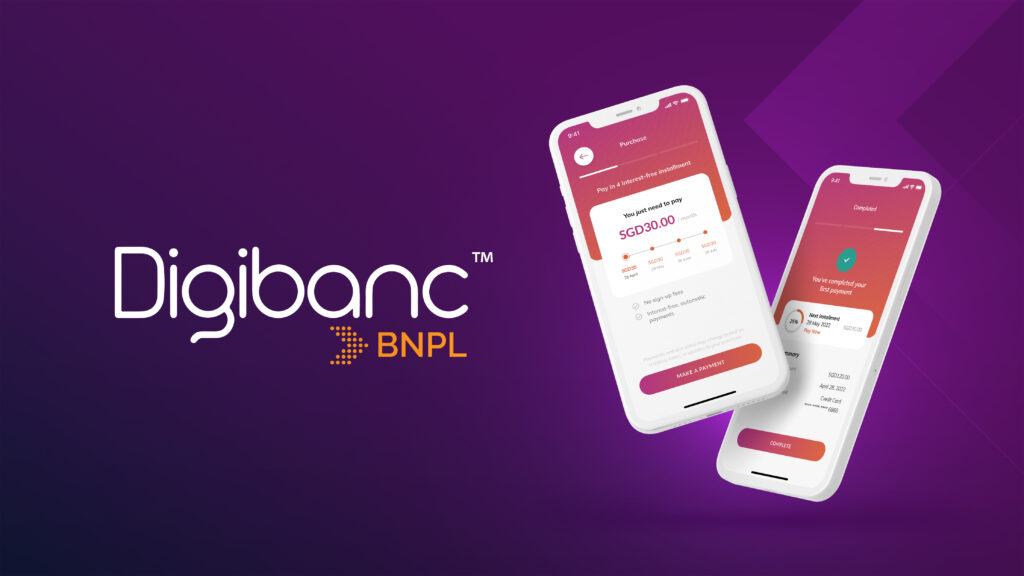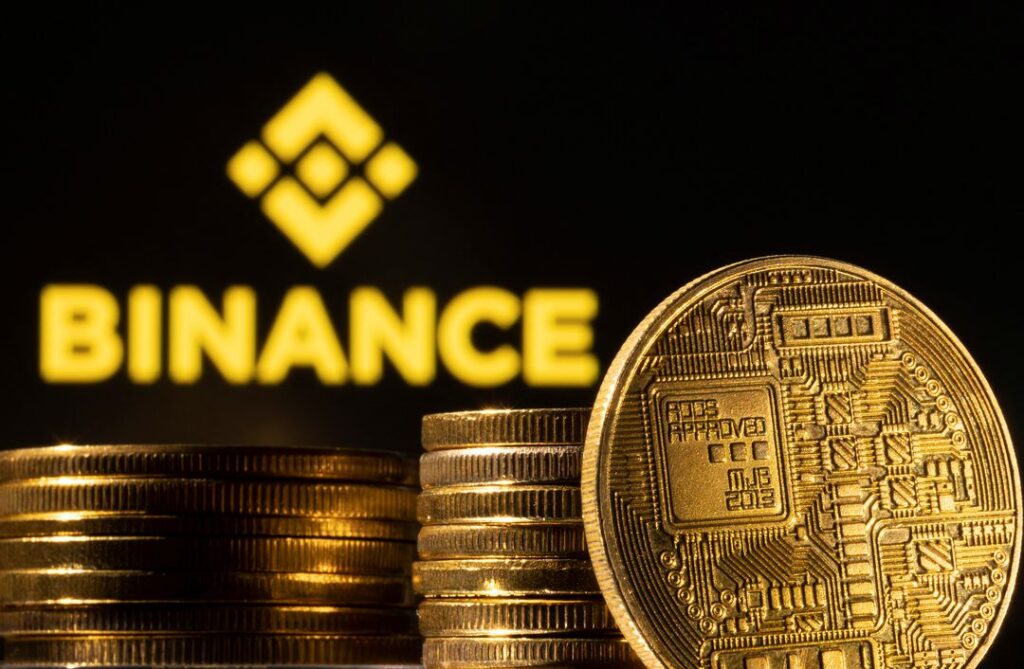Switching to the Satoshi standard and Lightning Network connectivity makes Bitcoin more tangible and easy to use. AAX has made the first move in the crypto space, already providing BTC to SAT
Exclusive: Decoding UK Crypto Policy Approach – Jackson Mueller, Securrency
LiveGovernments are getting crypto-curious, and with great curiosity comes extreme scrutiny and demand for abolishing anonymity when it comes to crypto transactions. Amid the EU’s bulldozering the crypto industry and the SEC posting new guidelines with recommendations for crypto exchanges, we have now a headliner – UK Government – declaring that they want to become a global crypto hub!
The UK Government statement highlights their appetite for crypto and digital assets, aiming to put the UK at the global center stage as a crypto tech hub. Many countries are aiming at the same spot (El Salvador, UAE) but let’s decode the approach UK will take and the positioning in the trifecta context – UK-EU-USA with Jackson Mueller, Director of Policy and Government Relations at Securrency.
Securrency is a blockchain-based financial markets infrastructure company focused on building a financial ecosystem to optimize financial logistics to enhance capital formation and stimulate global liquidity. Securrency is driving change at the core of financial services via a fully-interoperable distributed identity and compliance framework with state-of-the-art infrastructure designed to bridge legacy financial platforms to next-generation blockchain networks. One of the most advanced regulatory technology providers in the industry, Securrency has developed integrated, scalable, and universal compliance tools that automate the enforcement of the multi-jurisdictional regulatory policy.
Codebase Technologies launches industry-first white-label BNPL solution for banks, fintechs, lenders, and merchants
LiveAs worldwide adoption and usage of BNPL grows as the alternative payment method of choice for today’s young consumers, Codebase Technologies has responded by developing an innovative BNPL solution to help banks tackle the threat of rising BNPL brands. Leveraging Codebase Technologies’ award-winning digital banking platform, DigibancTM, the new BNPL component allows for banks, fintechs, lenders, retailers, and anyone in between to create and launch their own branded BNPL offering. Codebase Technologies has introduced the solution to the market after months of design, development, and robust testing.
As people continue to deal with the adverse effects of the COVID-19 pandemic on jobs and the economy, BNPL has emerged as a payment method of choice for millennials and Gen Z’s looking to adapt their spending habits to their new lifestyles. According to a study by Ascent, the most common reason to use buy now, pay later services is to make purchases that don’t fit in one’s budget – 45% of respondents have used it for this reason. Furthermore, 36% of buy now, pay later customers use BNPL once a month or more. Global adoption of BNPL is estimated to continue growing as 30.09% of global customers reported that they are very unlikely to use BNPL in the next six months.
Until now, companies looking to implement BNPL into their customer offering faced two choices: build it from scratch or partner with an existing BNPL brand. Building a BNPL solution is extremely costly and can take an extended period of time to test and deploy while partnering with a BNPL provider can take control away from a company and be quite expensive in the long run. Codebase Technologies DigibancTM BNPL component is ready-made and can be fully customized to allow anyone to launch a BNPL offering in just a few months. Taking a component-based approach to building your BNPL offering can be up to 50% faster than building from scratch and can be on average 40% cheaper, in the long run, than partnering with an existing BNPL provider. Using Codebase Technologies DigibancTM BNPL component also allows for 100% customizability and ownership of the final product.
DigibancTM BNPL’s fully customizable features include an integrated customer onboarding process, detailed data on customer financials and insights, automated decisioning across the customer lifecycle, customizable customer journeys, and more. In addition, the solution is core banking agnostic allowing it to be integrated with any legacy banking systems available in the market.
Raheel Iqbal, Managing Partner at Codebase Technologies, stated, “BNPL is an exciting space, and we’ve had multiple discussions in the past few months with financial institutions who have outlined the challenges they’re facing in adapting to this new trend. BNPL providers are popping up worldwide and attracting huge numbers of customers, and banks especially are feeling the pressure. So, of course, they want to capitalize on this trend to compete and give customers better and easier ways to make purchases. Our BNPL solution gives them a way to address that and launch their own BNPL offering quickly and cost-effectively. Introducing such a solution can help increase repeat business, lower customer credit risks, increase average order value, and improve customer experiences; the benefits are extensive.”
Omar Mansur, Global Enterprise Lead at Codebase Technologies, added, “We’ve seen a gap in the BNPL market for some time, especially when it comes to banks and lenders. The BNPL space has been growing and changing quickly, and large institutions haven’t historically been the quickest to adapt to new trends. Our white label BNPL solution gives them a fantastic tool to adapt to customers’ new preferences. The best part is that our solution is ready to deploy, we simply need to integrate and customize it for an organization, so the time to market is really quick.”
The launch of DigibancTM BNPL is supported by the release of Codebase Technologies whitepaper titled “Everything you wanted to know about BNPL”. The document covers key research and insights on BNPL across the world including benefits of BNPL, customer considerations, delivery models, global BNPL overview, and more.
The whitepaper is available here: https://www.codebtech.com/everything_you_wanted_to_know_about_bnpl/
Dubai grants crypto exchange Binance a virtual asset licence
LiveThe world’s largest cryptocurrency exchange Binance has been granted a licence to conduct some operations in Dubai, the company said on Wednesday, from where it plans to carry out regional business.
The awarding of the Virtual Asset Licence from Dubai’s recently formed Virtual Asset Regulatory Authority (VARA) comes after Gulf neighbour Bahrain on Tuesday awarded Binance a crypto-asset service provider licence, its first such licence from a Gulf Cooperation Council (GCC) country.
“Binance will be permitted to extend limited exchange products and services to pre-qualified investors and professional financial service providers. All licensed VARA service providers will be monitored progressively to open access to the retail market,” Binance said in a statement.
The crypto company will also anchor a blockchain technology hub in the Dubai World Trade Centre (DWTC), it said.
Financial regulators across the world have targeted Binance, with some banning the platform from certain activities and others warning consumers that it was not licensed to operate in their jurisdictions.
The United Arab Emirates (UAE), the Gulf region’s financial capital, has been pushing to develop the virtual asset sector and regulation to attract new forms of business as regional economic competition heats up.
Binance awarded Crypto-Asset service provider license in the Kingdom of Bahrain
Binance has been granted a crypto-asset service provider license from the Central Bank of Bahrain (CBB). This landmark achievement for Binance represents their first license as a crypto-asset provider in The Cooperation Council for the Arab States of the Gulf (GCC) and demonstrates their commitment to being in regulatory compliance as the first of its group of companies in the region.
Changpeng Zhao (CZ), founder and CEO of Binance, said: “The license from Bahrain is a milestone in our journey to being fully licensed and regulated around the world. I would like to thank Team Bahrain, guided by the visionary leadership of HRH Prince Salman bin Hamad Al Khalifa, Crown Prince and Prime Minister, for the great work in facilitating this achievement. Team Bahrain has shown considerable foresight in its development of crypto regulations and provides the regulatory protections that consumers should come to expect from regulators around the world.
I’m proud of the hard work of the Binance team to meet the stringent criteria of the Central Bank of Bahrain, not just locally but globally by ensuring that we meet and exceed the requirements of regulators and protect users with strong anti-money laundering and counter-terrorism financing policies.”
The crypto-asset license will allow Binance to provide crypto-asset trading, custodial services and portfolio management to customers under the supervision of the Bahrain regulators.
HE Rasheed Al Maraj, Governor of the Central Bank of Bahrain commented: “Developing regulations aligned with global trends is a key objective for us at the CBB. We continue to work with partners and industry leaders such as Binance to develop regulations that enable innovation and best practices.”
Khalid Humaidan, CEO of the Bahrain Economic Development Board (EDB) added: “Team Bahrain has built a world-class infrastructure to support the fast-growing blockchain and crypto industry, with robust regulations and diverse talent within the financial services, fintech and technology sectors. Collaboration with industry leaders such as Binance will further enhance our mission to establish the Kingdom of Bahrain as a leading business hub.”
Bitcoin-Banning Measure Seen Too Close to Call in Monday’s EU Parliament Vote
LiveCoindesk: A proposed rule that could effectively amount to a ban on the leading cryptocurrency bitcoin will be voted on by European Union (EU) parliamentarians Monday with the outcome very much undecided.
The parliament’s economic and monetary affairs committee is set to vote on a draft of the proposed Markets in Crypto Assets (MiCA) framework, the EU’s sweeping legislative package for governing digital assets.
The draft contains a late addition that looks to limit the use of cryptocurrencies powered by an energy-intensive computing process known as proof-of-work. Although the vote is still a close call, a small majority of committee members may vote against the measure, according to people familiar with the matter.
CoinDesk reported that the provision in question requires all crypto assets to be subject to the EU’s “minimum environmental sustainability standards with respect to their consensus mechanism used for validating transactions, before being issued, offered or admitted to trading in the Union.”
For cryptocurrencies like bitcoin and ether, that are already being traded in the EU, the rule proposes a phase-out plan to shift their consensus mechanism from proof-of-work to other methods that use less energy, like proof-of-stake.
Although there are plans to move ethereum to a proof-of-stake consensus mechanism, it’s unclear whether the same option is available for bitcoin.
The provision was met with swift backlash from the crypto community worldwide.
“Extremely high stakes vote in the EU. That such a proposal made it this far is extraordinarily concerning and unlikely to stand up to practical reality,” said Jeremy Allaire, founder of Circle Pay, on Twitter.
A number of EU parliamentarians have been pushing to ban proof-of-work cryptocurrencies over energy concerns, even if the energy in question were to be renewable. They fear that renewable energy could be channeled into proof-of-work computing rather than the national grid destined for public use.
Credit Libanais partners with Codebase Technologies and VISA to empower the unbanked population
LiveCredit Libanais has partnered with VISA, the world leader in digital payments, and Codebase Technologies to develop a frictionless, omni-channel onboarding experience for customers looking to acquire virtual prepaid cards. This initiative comes at a time when over 6 million Lebanese are struggling from utilizing their debit and credit cards for purchases made abroad and online.
Credit Libanais, worked closely with the Lebanese Central Bank to get the approval on the first digital prepaid eKYC by a Lebanese bank, paving the way to offer the unbanked population a fully digital channel via a mobile application to instantly apply for a virtual prepaid card allowing people across Lebanon a quick and digital solution for international and online payments.
Built using Codebase Technologies, award winning Digibanc™ Suite, the solution will feature frictionless eKYC, omni-channel onboarding experiences, and empower Credit Libanais with rapid customer acquisition and customers with unique digital experiences. The Digibanc™ Suites modular and flexible architecture will support the necessary enterprise application interactivity requirements to ensure frictionless communication between various Credit Libanais systems: the bank’s card management system, AML, Email and SMS gateways, in order to validate the information filled by the user.
Mrs. Randa Bdeir, Deputy General Manager and Head of Electronic Payment at Credit Libanais said: We partnered with Codebase and VISA and came up with this innovative product that offers any Lebanese citizen the ability to apply for a virtual card through a mobile application with full eKYC process, thus reducing the need to visit the bank’s branches and go through the long physical application process”. This solution will drive financial inclusion further and grant the unbanked population with equal opportunities to access useful and affordable financial products and services that meet their needs and leads to a stronger and more sustainable economic growth and development and will offer any user the ability to use their card abroad with no restrictions.
Tamer Al Mauge, Codebase Technologies Managing Director MENA, commented “Lebanon is going through an unprecedented crisis that is massively impacting people’s lives. We’re proud to be working with strong partners, Credit Libanais, VISA and the Lebanese Central Bank to facilitate a first to market product for the Lebanese people. In line Codebase Technologies vision of utilizing technology for a greater purpose, we can’t think of a better way to leverage our expertise and solutions to empower the people of Lebanon with a new way to access and use much needed financial services.”
Mario Makary, Visa’s Country Manager in Levant stated “At the heart of our strategy lies access. The concept of ‘access’ for all, regardless of geography, social status, or financial education, that is a vital facet of who we are and what we do at Visa today. By accelerating digital-first experiences, we’re enabling the movement of money for everyone, everywhere. Our experience and resources joining forces with Codebase Technologies and Credit Libanais to help bring this service to the Lebanese customers is a milestone and we’re excited for the opportunities this will bring for the Lebanese market during these circumstances”.
State Street to enter digital custody business with Copper.co
LiveState Street, one of the world’s largest custodians, is to enter the digital asset safekeeping business using technology from London startup Copper.co.The Wall Street giant says it intends to launch an institutional-grade digital custody offering where clients can store and settle their digital assets within a secure environment operated by State Street.
Copper.co provides a gateway into the crypto asset space for institutional investors by offering custody, trading, and settlement across 450 crypto-assets and more than 40 exchanges.
“As institutional investors’ interest in digital assets continues to grow, we are building the financial infrastructure needed to support our clients’ allocations to this new asset class,” says Nadine Chakar, head of State Street Digital. “State Street Digital’s mission continues to focus on putting the right tools in place so we can provide clients with solutions to support their traditional, as well as digital assets needs.”
State Street began embracing the shift to decentralised finance in June last year with the creation of a new division specifically to engage with digital assets, including cryptocurrencies.
FTX chooses Stripe for payments and ID verification
LiveCrypto giant FTX and its US subsidiary have chosen Stripe to build an onboarding and identity verification flow for users joining the exchange, and to power payments for people adding funds to their accounts.Stripe will now power users who want to purchase cryptocurrencies with debit cards and ACH transactions directly from their bank.
In addition, FTX is using Stripe Radar to tackle fraud risk. Radar uses machine learning models and signals including customer details and billing information to distinguish fraudsters from legitimate customers.
Finally, the crypto exchange has chosen Stripe Identity to build an onboarding and identity verification flow designed to make it easier for new crypto investors to prove they are who they say they are.
Says FTX US President Brett Harrison: “We’re seeing greatly increased speed of KYC processing, higher rates of automated approvals, and a smoother UX for our customers.”
Biden’s Executive Order: Crypto Industry Sentiment is Hopeful but Cautious
LivePresident Joe Biden on Wednesday signed an executive order on government oversight of cryptocurrency that urges the Federal Reserve to explore whether the central bank should jump in and create its own digital currency.
The Biden administration views the explosive popularity of cryptocurrency as an opportunity to examine the risks and benefits of digital assets, said a senior administration official who previewed the order Tuesday on the condition of anonymity, terms set by the White House.
Under the executive order, Biden also has directed the Treasury Department and other federal agencies to study the impact of cryptocurrency on financial stability and national security.
The leaders shaping the crypto industry in the US received the news with caution and hope.
Jackson Mueller, Director of Policy, Government Relations at Securrency:
“Today’s Executive Order issued by the Biden Administration demonstrates that digital assets are here to stay and, as such, the Administration is now fully invested in developing an appropriate government-wide approach to the responsible development of digital assets. However, there are a few concerns raised by this Executive Order. First, is the administration unintentionally duplicating existing or ongoing work from a variety of agencies that could lead to disparate views between the Administration and independent financial regulatory authorities? Second, is the Administration setting up a clash with Congress, particularly as it relates to activating the DOJ to determine if legislative changes are necessary to launch a CBDC? Several lawmakers and Federal Reserve officials seem to think so, but the Administration could view this differently. Third, in seeking to address systemic risks from digital assets, which include stablecoins, the required Treasury-led FSOC report could provide further ammunition for the FSOC to jump ahead of Congress in setting the regulatory framework for stablecoins, which would mark a deviation from the recommendations contained in the PWG Stablecoin report and recent testimony from Under Secretary for Domestic Finance Nellie Liang.”
Tara Frater, Principal and Owner at FT Legal:
The order is, in effect, a salvo by the US declaring their intent to undertake a comprehensive investigatory analysis of the opportunities and challenges of digital assets and, in a coordinated manner, address regulatory overlap and, very likely, reduce any scope for regulatory arbitrage.
But the declaration is a validation of sorts of the significance of digital assets in our understanding of and trading in economic value; a recognition that we are most definitely in a new era; and more importantly that despite their reservations the US wishes to maintain thought leadership on policy issues.
Adrian Brink, founder of Anoma:
“The most immediately helpful actions would be for the administration to first, draft a straightforward and streamlined regulatory framework. Second, they should establish a digital USD that can be transferred between all chains in a permissionless fashion. In other words, a digital version of the USD issued by the U.S. Federal Reserve should be usable across chains (for example on Ethereum).
Governments should also support research into distributed systems and privacy. Distributed systems (or, blockchains) increase the resilience of their country’s financial infrastructure. By decentralizing the financial system, countries can achieve much higher fault tolerance and make themselves harder to attack by adversaries.
Additionally, governments should support technologies that safeguard privacy. These technologies protect individuals from foreign hostile actors and data hungry multinational corporations. The alternative is that anyone with a computer and internet could run a global financial surveillance program similar to the NSA and surveil U.S. citizens.
In summary, governments should invest in distributed systems and technologies that safeguard privacy to build more resilient systems, and provide asymmetric advantages in national defense.”
Sam Bankman-Fried – Founder FTX:
“We applaud the Biden administration for recognising the growing importance of the digital-asset space and believe today’s executive order is a significant step forward in building a strong regulated environment in the US. Innovation will always need to be coupled with safeguards and protections.”
Brad Garlinghouse, CEO Ripple Labs:
“Like many of you, I thought the Biden Admin’s EO would acknowledge crypto, but not detail specifics on next steps for regulation. However, I was pleasantly surprised & inspired by the EO acknowledging the *need* for evolution and alignment of the government’s approach to crypto.”
Jeremy Allaire, co-founder and CEO of Circle:
“For those of us in the crypto community, IMHO this E.O. should be viewed as the single biggest opportunity to engage with policymakers on the issues that matter. The proverbial doors of policymakers are WIDE OPEN, this is now a NATIONAL conversation in the U.S.”
Dubai adopts first virtual asset law
LiveThe emirate of Dubai has adopted its first law governing virtual assets and established a regulator to oversee the sector, its ruler Sheikh Mohammed Bin Rashid said on Wednesday.
The United Arab Emirates, a federation of seven emirates and the region’s financial capital, has been pushing to develop virtual asset regulation to attract new forms of business as regional economic competition heats up.
Virtual assets generally encompass products including cryptocurrencies and NFTs, but the announcement did not specify which assets would come under the new law.














